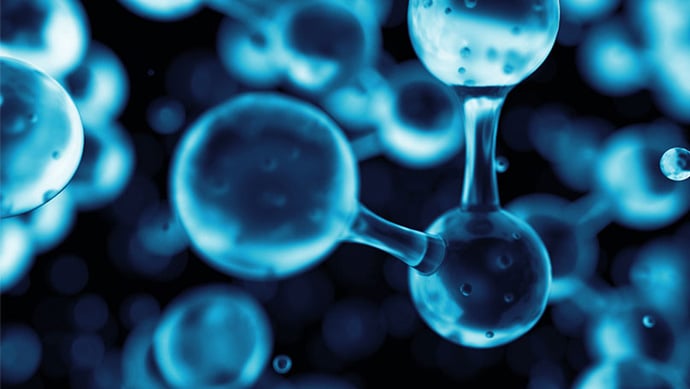Mass Spectrometry: Shortening Time Scales and Progressing Towards Automation

On 21 to 22 March 2022, Oxford Global was proud to host its flagship Biologics Series UK event, consisting of the 15th Annual Proteins & Antibodies Congress and the 9th Annual Peptides & Oligonucleotides Congress. Held in London, the conference provided a networking opportunity to engage with key opinion leaders, including preeminent industry and academic representatives, and critical solution provider companies.
The two-day cutting-edge scientific conference welcomed over 250 delegates onsite. With 80 industry-led and sponsored presentations, think tank roundtable discussions, and complementary pre-event webinars, the Biologics Series UK event 2022 was an opportunity not to be missed.
- The Black Box Effect – How Can AI and ML Provide Transparent Insights for Drug Discovery?
- Nature Announces Top 10 R&D Institutes
- The Countdown Begins: How ADCs will Become the Next Generation of Biologics Therapeutics
One of the main highlights of the programme was the track dedicated to bioanalysis, which focused on topics such as characterisation, developability, and quality control attributes. The most attended industry presentations from within the track discussed the future of bioanalysis utilising mass spectrometry. Below, we outline the top two presentations and summarise some of the key insights covered to learn about the recent progress being made in evolving the utility of mass spectrometry as an analytic tool.
Presentation 1: Mass Spectrometry and Molecular Dynamics to Characterise Proteins and their Formulations
By Paul Dalby, Professor at University College London
Dalby discussed UCL’s various collaborations to develop an understanding of formulation and aggregation in protein engineering. He began by identifying the key concerns and aims of studying protein characterisation using mass spectrometry and molecular dynamics. These included: increasing a fundamental comprehension of structural mechanisms in biological stability and aggregation, deducing mechanisms for formulation excipients, and achieving informed formulation approaches to enable better design and prediction.
However, a significant problem facing protein engineering efforts today is the sheer number of potential factors affecting aggregation. “The problem with aggregation is that it's everywhere, and it’s affected by nearly every change you implement,” Dalby explained. In response, UCL set out to investigate and determine the molecular characteristics that make the protein susceptible to aggregation.
In particular, they conducted two case studies utilising hydrogen/deuterium exchange (HDX) mass spectrometry (MS). Case study 1 aimed to identify excipient binding effects on structure, whilst case study 2 analysed structural changes that correlated to stability. “Overall, results showed that molecular docking identified excipient binding hotspots and molecular dynamic simulations verified this,” Dalby said. HDX analysis on a range of mutants also successfully located the structural changes that correlated to independently measured stability and aggregation propensity.
Presentation 2: Using Mass Spectrometry with Automated Data Evaluating for the Identity Release Testing of Biologics
By Sébastien Violini, Scientist of Technical Research & Development at F. Hoffmann La Roche AG
Violini presented the critical points to consider for user-friendly data evaluation during the implementation of release testing via mass spectrometry. He began by asking, “what is peptide mapping? And why are we doing it?” Peptide mapping is used to determine the identity of a specific product and molecule. Traditionally, Roche had employed a UV method based on visual chromatogram comparison to generate these IDs. However, the drawbacks of UV detection for peptide mapping are numerous. UV peak variability often occurs when retention time shifts. Additionally, differing analytic conditions and resolutions can cause statistical inconsistencies. Other challenges include impact specificity and analysis bias.
As an alternative, Roche developed a web-based application combined with the EMPOWER MS Spectra to conduct ID peptide determination. The method used in-silico enzymatic digestion to facilitate a comparison of peptide fragments between portfolio products. “Nomination of ID candidates then happens according to occurrence in other products,” Violini said. “The real-world data produced from the mass spectrometry confirms the final ID candidates.”
Roche found that peptide mapping with MS detection solves the current challenges of UV detection. Their approach successfully transferred biologics to their commercial sites and provided opportunities for robustness and repeatability. “MS technology with automated data evaluation and reporting can be implemented in good manufacturing practice and cQc testing,” Violini concluded.
Biologics UK: An Opportunity to Engage, Educate, and Elevate
The upcoming Biologics UK event is scheduled for 30 to 31 March 2023. It will take place in London, UK and feature a dedicated focus on bioanalysis and its ability to accelerate biologics characterisation and analysis.
As Europe’s premier meeting for Biologics research and development, the event provides an exciting opportunity to engage, educate, and elevate. Engage with peers and leading solution providers in an exclusive networking environment. Educate yourself with the latest research and innovation in our renowned conference programme. And elevate your biologics research through immersive, discussion-based sessions within a committed community.
Download the agenda today to join prominent leaders and scientists as they share new case studies, innovative data, and exciting industry outlooks.
Join Oxford Global’s annual Biologics UK: In-Person event today. This 3-day conference brings together a panel of prominent leaders and scientists, sharing new case studies, innovative data, and exciting industry outlooks.







